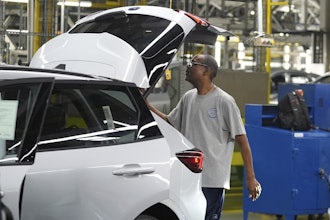For some of us, the phrase “mid-life crisis” might come to mind when encountering an individual of a certain age tearing down the street in a sports car. Well, enjoy this sight while it lasts, because Bloomberg is reporting that the Baby Boomer generation is starting to outgrow their mid-life crisis years, and that’s bad news for automakers who want to sell sports cars.
Bloomberg says that men born between 1946 and 1964 are the ones who buy the most sports cars – and they’re cruising past their peak spending years. That’s left some iconic brands slumping. Notably, Ford actually idled its Mustang plant for a full week because sales were down 9 percent for the year. The Camaro and Corvette are down 11 percent and 14 percent, respectively, this year.
What’s unfortunate is that, since the Baby Boomers vastly outnumber the generation that follows – that would be the Gen X-ers – there won’t be enough people to fill the gap is this demographically driven purchasing category. If there are fewer at mid-life, then there are fewer crises. Right?
One issue might be that the cost is simply too high – at least for now. Chevy is marketing new versions of both the Corvette and Camaro with smaller and cheaper attributes that, while still sporty, can lower the sticker price a bit.
But the other issue is lifestyle. Jessica Caldwell, an analyst with Edmunds.com, said that, for younger generations, a car that fits someone’s lifestyle and is still sporty is a better option than a true sports car, meaning the coupe has sorta lost its cool factor and the era of the sporty SUV may actually be on the horizon.
So I guess this means that if Fast Times at Ridgemont High were filmed today, instead of a Camaro, Spicoli would be crashing a nicely equipped, 7 passenger SUV, with plenty of cargo space. Cool.






















